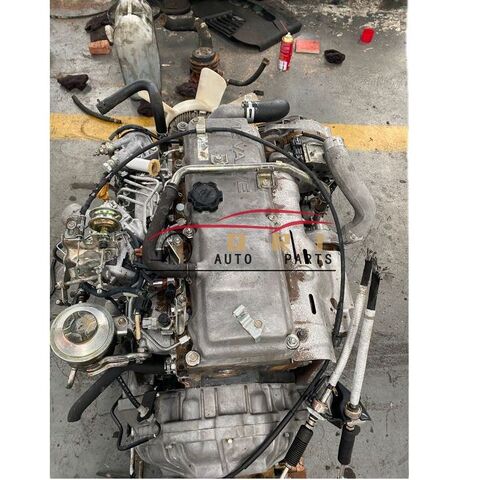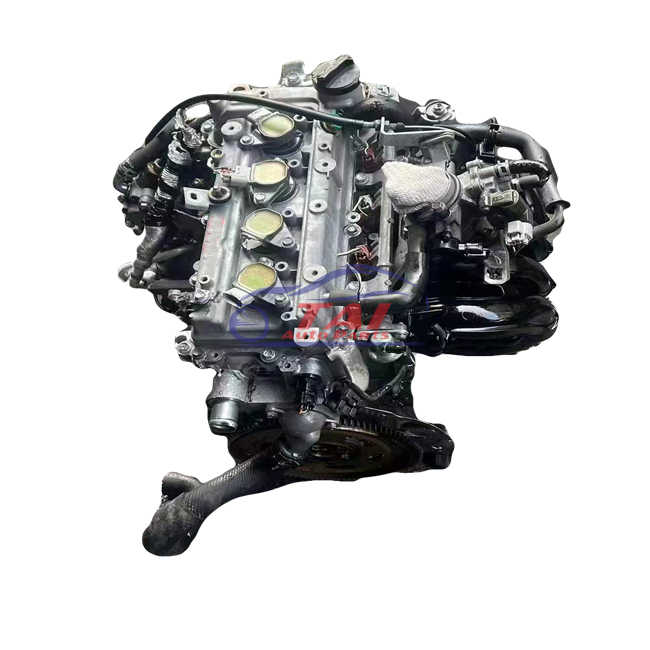Contrasting the Toyota RunX RSI to Various Other Compact Performance Cars
Contrasting the Toyota RunX RSI to Various Other Compact Performance Cars
Blog Article
Explore Top Quality and Value: Your Overview to Acquiring a Second Hand Engine
When considering the acquisition of a pre-owned engine, comprehending the complex balance between high quality and worth is critical. A detailed evaluation of engine problem, dependability, and background is necessary to make sure a sound financial investment. By conducting proper assessments and research study, prospective customers can navigate the complexities of the market much more properly. The subtleties of service warranty choices and prices approaches can substantially affect the general decision-making procedure. As you ponder these elements, one inquiry stays: what certain aspects will inevitably lead your choice in this vital financial investment?
Understanding Engine Kind
When thinking about the purchase of a second-hand engine, comprehension of the various engine types is necessary for making an informed choice. Engines can typically be categorized right into 2 major types: inner burning engines and electric engines. Interior burning engines, which consist of fuel and diesel variants, count on the combustion of gas to produce power. Fuel engines are usually lighter and rev higher, making them ideal for efficiency automobiles, while diesel motor are renowned for their torque and gas effectiveness, commonly preferred in heavy-duty applications.
On the other hand, electric engines make use of power stored in batteries to power the vehicle, providing a cleaner alternative with less relocating components and minimized upkeep requirements. Within these categories, there are better distinctions, such as four-stroke versus two-stroke inner burning engines, and various electrical motor arrangements.
Comprehending these differences is vital, as they impact performance, compatibility with existing vehicle systems, and long-lasting operational prices. By familiarizing oneself with the various kinds of engines readily available, prospective purchasers can better evaluate their needs and make choices that align with their automobile's requirements and their individual preferences.

Assessing Engine Problem
A thorough analysis of engine condition is extremely important for any person taking into consideration the purchase of a pre-owned engine. Start with an aesthetic examination; check for signs of oil leaks, rust, or any physical damage to the engine block. A tidy engine is frequently a sign of good maintenance methods, while excessive crud may suggest disregard.
Next, examine the engine's elements, consisting of the timing belt, gaskets, and seals. Look for damage, as these components can be costly to change. Additionally, check out the engine installs, as harmed places may bring about vibrations and further mechanical concerns.
A compression test is necessary to evaluate internal engine health and wellness. Uniform compression throughout all cyndrical tubes indicates a properly maintained engine, whereas substantial disparities might direct to interior damage or wear.
Listening to the engine during a start-up can offer valuable understandings; any type of uncommon sounds, such as rattling or knocking, might suggest much deeper concerns. If possible, request a test run to evaluate efficiency under load. By thoroughly analyzing these variables, possible buyers can make informed decisions and protect a top quality second-hand engine.
Monitoring Engine Background
Recognizing the engine's history is important for making a well-informed acquisition. Expertise of previous usage, maintenance documents, and any kind of past damages can substantially affect the engine's integrity and durability. Beginning by requesting the car recognition number (VIN) or engine identification number, which enables you to trace the engine's history.
Make use of offered sources, such as Carfax or AutoCheck, to acquire a car history record. This record will supply crucial understandings, consisting of mishap background, service records, and previous pop over to these guys possession details. Toyota RunX RSI. Pay particular attention to any type of indications of severe damage or duplicated repair services, which may show underlying problems
Ask about maintenance routines carried out on the engine. Normal oil adjustments, timing belt replacements, and other safety nets show liable ownership. Furthermore, ask if the engine has gone through any alterations, as non-standard changes can influence efficiency and compatibility with your automobile.
Last but not least, ideally, look for verification from a relied on technician who can examine the engine's problem based on its history (Toyota RunX RSI). This complete examination will certainly assist you stay clear of potential challenges and make sure that your financial investment is audio and rewarding
Guarantee and Return Plans
Getting a used engine commonly comes with differing service warranty and return plans that can significantly impact your choice. When taking into consideration a used engine, it is crucial to completely assess the warranty choices provided by the vendor.

Additionally, reputable sellers typically offer documentation that outlines the warranty and return process, ensuring transparency. Always request for this details before settling your purchase. A distinct service warranty and return policy can give satisfaction and shield your financial investment, making it an indispensable part of the decision-making procedure when buying a pre-owned engine.
Locating the very best Offers
When seeking the most effective bargains on a used engine, it is vital to perform detailed study and compare rates from numerous sellers. Start by checking out on-line industries, vehicle discussion forums, and local salvage lawns to collect a comprehensive understanding of the market. Making use of rate comparison devices can enhance this process, highlighting affordable rates across various platforms.

Think about timing your acquisition purposefully. Seasonal variations in demand can impact costs, with certain times of the year providing better deals. Additionally, be open to working out rates; numerous sellers might be ready to decrease their asking price, especially Get More Info if the engine has been provided for an extended duration.
Verdict
In recap, purchasing a second-hand engine necessitates an extensive assessment of high quality and worth. Assessing engine condition through assessments and tests, validating its history, and recognizing guarantee and return plans are essential steps.
When taking into consideration the acquisition of a pre-owned engine, comprehension of the various engine types is crucial for making an informed decision. Engines can usually be classified right into 2 major kinds: inner burning engines and electrical engines. Fuel engines are commonly lighter and rev greater, making them appropriate for efficiency cars, while diesel engines are renowned for their torque and gas effectiveness, commonly favored in durable applications.
An extensive analysis of engine problem is vital for anyone thinking about the purchase of a used engine. Beginning by requesting the vehicle recognition number (VIN) or engine serial number, which allows you to trace the engine's background.
Report this page